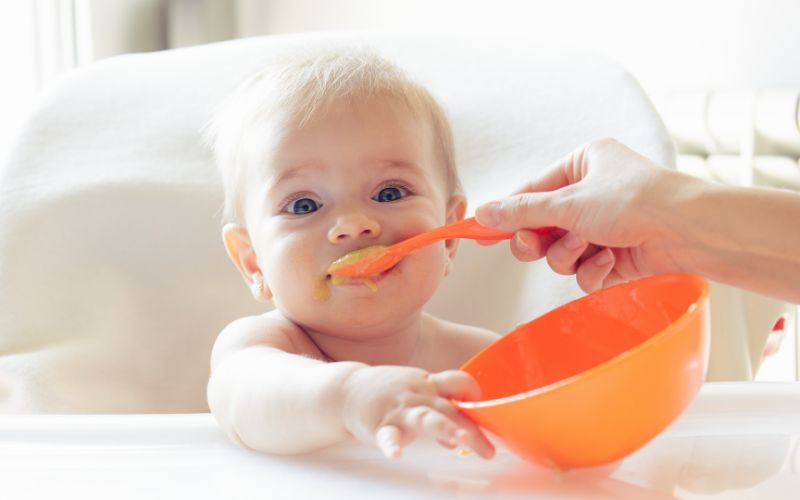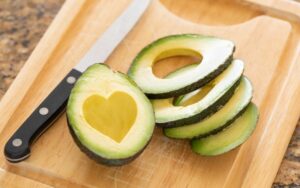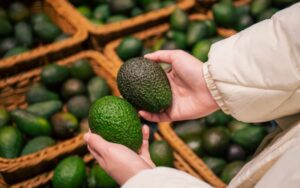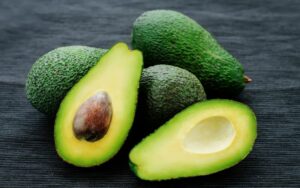Avocado, with its creamy texture and rich nutritional profile, is often recommended as a healthy food choice for babies. As a parent, you may be wondering how much avocado you can safely introduce into your baby’s diet. In this article, we will provide you with a comprehensive guide on how much avocado per day is suitable for your little one, considering their age, developmental stage, and overall dietary needs.
Introducing solid foods to your baby is an exciting milestone, and avocados can be a great choice due to their high nutrient content. However, it’s essential to understand the appropriate amount of avocado to offer your little one to ensure their health and safety
Recommended Serving Portion Sizes of Avocado for Baby
The recommended serving size of avocado for babies varies depending on their age and developmental stage. Here is a general guideline:
| Age Range | Serving Size |
|---|---|
| 4-6 months | 1-2 teaspoons per day |
| 6-8 months | 1-2 tablespoons, 1-2x/day |
| 8-12 months | 2-4 tablespoons, 1-2x/day |
Stage 1: 4-6 months
At this stage, babies are typically just starting to explore solid foods. You can introduce mashed avocado in small quantities, about 1-2 teaspoons per day. Monitor for any adverse reactions.
Stage 2: 6-8 months
As your baby grows and develops, you can gradually increase the serving size. Offer around 1-2 tablespoons of mashed avocado, one to two times a day.
Stage 3: 8-12 months
By this stage, your baby’s digestive system is more mature, and they can handle larger portions. Offer about 2-4 tablespoons of mashed avocado, one to two times a day.
Nutritional Benefits of Avocado for Babies
Avocado is often referred to as a “superfood” because of its impressive nutritional profile. It is rich in healthy fats, fiber, vitamins, and minerals. The monounsaturated fats in avocados promote brain development and aid in the absorption of fat-soluble vitamins. Avocado also contains essential nutrients like vitamin K, vitamin E, vitamin C, and potassium.

Introducing Avocado to Your Baby’s Diet
When introducing avocado to your baby’s diet, it’s crucial to start with small quantities and gradually increase the serving size. This approach allows you to monitor any potential allergic reactions or digestive issues. Before introducing avocados, consult with your pediatrician to ensure your baby is ready for solid foods.
Avocado Allergies and Precautions
While avocado allergies are rare, it’s essential to be aware of any potential reactions. When introducing avocado for the first time, watch for signs of an allergic reaction, such as rash, hives, swelling, or difficulty breathing. If you notice any of these symptoms, stop feeding avocado to your baby and seek medical attention immediately.
Signs of Avocado Intolerance in Babies
In some cases, babies may have difficulty digesting avocado or may be intolerant to it. Signs of avocado intolerance may include diarrhea, stomach cramps, or excessive gas. If you notice these symptoms after introducing avocado to your baby, consult with your pediatrician to determine the best course of action and whether to continue offering avocado as part of their diet.
Other Considerations for Introducing Avocado
When introducing avocado to your baby, keep the following tips in mind:
- Choose ripe avocados: Opt for avocados that are soft but not overripe. This texture will make it easier to mash and digest for your baby.
- Use fresh avocados: Avoid using avocados that have turned brown or show signs of spoilage.
- Serve avocado as a standalone food: During the initial stages of introducing solids, it’s recommended to serve avocado on its own to monitor your baby’s reactions.
- Be creative with texture: As your baby becomes more comfortable with avocado, you can experiment with different textures, such as chunkier mashed avocado or small avocado slices
Conclusion
Avocado is a nutrient-dense food that can be a valuable addition to your baby’s diet. Following the recommended serving sizes and monitoring your baby’s reactions will help ensure their safety and enjoyment of this healthy fruit. Remember to consult with your pediatrician for personalized guidance and enjoy exploring the world of food with your little one




